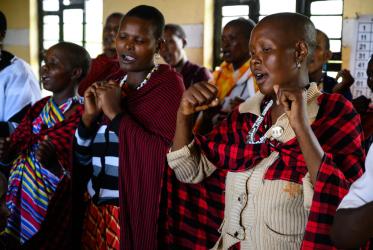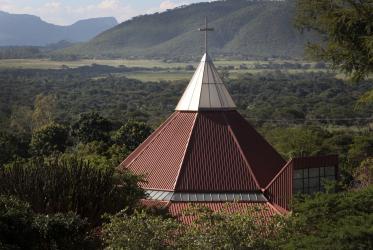Displaying 1 - 20 of 24
21 December 2023
#WCC70: A prayer about health and healing
20 July 2018
New videos help congregations hasten HIV response
20 October 2016
Voices from HIV workshop reflect deep impact
07 April 2016
Person with disability shares reflection on AIDS conference
10 December 2015
Overcoming discrimination to address HIV in Zimbabwe
11 November 2015












